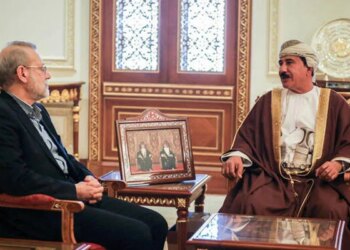Select Language:
Top Nobel Peace Prize Winners From 1911 to 2025
1. Early Pioneers (1911–1930s)
The Nobel Peace Prize has a storied history of honoring individuals and organizations dedicated to global harmony. The inaugural award in 1911 went to Tobias Asser of the Netherlands and Alfred Fried of Austria. During these decades, the prize often recognized prominent figures like U.S. Secretary of State Elihu Root in 1912 and Belgian politician Henri La Fontaine in 1913, who championed social causes and diplomacy.
World War I delayed awards, but in 1917, the International Committee of the Red Cross received recognition for its humanitarian work. Post-war figures like U.S. President Woodrow Wilson were awarded in 1919, reflecting the global call for peace after the devastation of the war.
In the 1920s, winners included French statesman Léon Bourgeois, Norwegian diplomat Christian Lange, and Swedish politician Hjalmar Branting. The decade was characterized by recognition of efforts to reconcile nations through diplomatic negotiations, such as the 1926 awards to Aristide Briand of France and Gustav Stresemann of Germany.
2. Post-World War II and Humanitarian Focus (1940s–1950s)
The aftermath of World War II saw a surge in awards honoring efforts toward reconciliation and human rights. The International Red Cross was again recognized in 1944, highlighting its ongoing humanitarian role. In 1945, U.S. diplomat Cordell Hull was awarded for his work on international trade agreements that promoted peace.
The late 1940s and early 1950s marked a shift toward recognizing individuals striving for social justice and diplomacy, including British labor leader Léon Jouhaux and French theologian Albert Schweitzer. The 1950s also saw the recognition of the United Nations and its agencies, such as the Office of the High Commissioner for Refugees in 1954.
3. The Civil Rights and Social Movements Era (1960s–1970s)
The 1960s brought recognition to civil rights leaders and organizations. Martin Luther King Jr. received the prize in 1964 for his leadership in the civil rights movement. The era also saw the Nobel Peace Prize awarded to the United Nations for its peacekeeping missions in 1963.
The late 20th century was marked by recognition of global dissidents and anti-apartheid heroes. Nobel laureates like Desmond Tutu and Nelson Mandela (both from South Africa) became symbols of resistance and reconciliation. The 1970s celebrated figures like Willy Brandt of Germany and peace negotiators such as Henry Kissinger (who controversially received the award in 1973).
4. The End of Cold War and Global Humanitarian Leaders (1980s–1990s)
The 1980s featured awards to prominent human rights advocates like Mother Teresa (1979), Desmond Tutu, and organizations such as Amnesty International, emphasizing human dignity amidst Cold War tensions. The fall of the Berlin Wall in 1989 and the end of the Cold War shifted focus toward democracy and reconciliation.
The 1990s spotlighted peace efforts in conflict-ridden regions. Notable laureates include South African Nelson Mandela and F.W. de Klerk in 1993, Yasser Arafat and leaders from Israel for Middle East peace, and the International Campaign to Ban Landmines in 1997.
5. New Millennium and Modern Humanitarian Efforts (2000–2025)
The 2000s saw a range of laureates committed to global development and peace. U.S. President Barack Obama received the award in 2009 amidst hopes for nuclear disarmament, though this choice sparked controversy. The 2010s continued honoring activists and organizations like the European Union (2012), Malala Yousafzai (2014), and the International Campaign to Abolish Nuclear Weapons (2017).
Recent years highlighted efforts on democracy, digital freedom, and climate change. In 2021, the Nobel Peace Prize was shared among Maria Ressa (Philippines), Dmitry Muratov (Russia), and advocates of free speech and media independence. The 2022 awards recognized activists from Belarus, Russia, and Ukraine, emphasizing resilience amid conflict.
6. Most Recent Laureates (2023–2025)
2023’s recipient was Iranian activist Narges Mohammadi, honored for her courageous fight for human rights amidst repression. In 2024, Nihon Hidankyo was recognized, highlighting the persistent quest to eliminate nuclear weapons and promote peace.
The 2025 Nobel Peace Prize was awarded to Maria Corina Machado of Venezuela, acknowledging her relentless advocacy for democracy and social justice in turbulent conditions.

Note: The image showcases some of the notable laureates throughout the award’s history, symbolizing decades of dedication to peace and justice.
Key Takeaways:
- The Nobel Peace Prize has evolved from recognizing diplomacy and humanitarian efforts to including civil rights, social justice, and digital freedom.
- Many laureates have championed nonviolent resistance, human rights, and disarmament, inspiring millions worldwide.
- The award continues to reflect the most pressing global issues, from war and conflict to climate change and digital rights, demonstrating its relevance in 2025.






